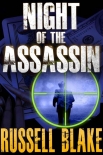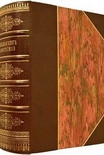The Cutthroat, Clive Cussler [best ereader for manga txt] 📗

- Author: Clive Cussler
Book online «The Cutthroat, Clive Cussler [best ereader for manga txt] 📗». Author Clive Cussler
“I set it up to take another shot,” said Scudder Smith. “I got the publicist interested in me ghostwriting their memoirs. Or do you want Helen or Archie?”
“It’s my turn,” said Bell.
35
As they did most evenings in every city they played, Jackson Barrett and John Buchanan walked home to their train after the show. At the station tonight, just inside the private platforms entrance, a tall, lean, golden-haired young gentleman in a white suit touched the brim of his hat in a friendly salute.
“Good evening, Mr. Barrett and Mr. Buchanan. I am Isaac Bell, and I would be honored if you would join me for supper in my car.”
Bell gestured toward a palatially fitted dark green and gold car, which the actors had already noticed was cut several notches above the other millionaires’ train cars parked overnight in Cincinnati.
Buchanan demurred. “Thank you, Mr. Bell. But it’s been a long day.”
“It’s been many long days for me,” said Bell, “but I am at last in a position to make a lucrative proposal.” He gestured again to the car, adding, “I know I can’t lure you with champagne, but my cook grills one of your favorite dishes—Maryland rockfish.”
“How’d you find that out?” asked Buchanan.
Bell answered with an easy grin, “I am new to the theater, but by exercising due diligence on behalf of my syndicate, I learned that actors are famously hungry after a performance—ravenous after a brilliant one—and that you two have a particular preference for rockfish. Though we Hartford Yankees call them striped bass.”
Barrett asked, “Where’d your cook get rockfish fresh in Cincinnati?”
“He traded the champagne you don’t drink for iced beauties from a St. Louis express.”
“I am persuaded,” said Barrett.
“Me, too,” said Buchanan.
Bell led them into his car. A first course of chilled Gulf shrimp and Maine lobster was laid out on a candlelit dining table set with silver, crystal, and Staffordshire bone china decorated with scenes from Shakespeare.
As Archie Abbott had predicted, Barrett and Buchanan tore into the shrimp and lobster in appreciative silence. Bell watched in awe as they tackled striped bass, asparagus tips, and new potatoes Parisienne as avidly, and it was only over Baked Alaska that Jackson Barrett finally asked, “What lucrative arrangement are you proposing, Mr. Bell?”
Bell said, “I had lunch with your angels, as theater folk call them, and concluded I would rather approach you directly.”
“In other words, they weren’t interested?” asked Barrett.
“They were more interested in persuading me to share in Dr. Jekyll and Mr. Hyde.”
“Why?”
“Come now, gentlemen, that wire-service story is no secret. I’m sure you’ll weather it, but the Deavers’ desire to spread the risk and get some of their money out is reasonable. I personally have little doubt that your Dr. Jekyll and Mr. Hyde will tour for many years.”
“From your lips to God’s ear,” said Buchanan.
“But at some point, I imagine, you would want to move on.”
“Where?”
“A new show,” said Bell.
“Leap from a sure thing into the pit of speculation?” said Buchanan. “No thank you, sir. The only new show I’d do would be made with the wave of a magic wand instead of money—but still sells tickets for money.”
“First rule of the stage,” Barrett chimed in. “Cherish your hits. When you close a good play, you miss it forever. You’ve been immortal—a god—until the curtain comes down on your final performance. Next morning, you’re knocking on a banker’s door with your hat in your hand.”
Bell said, “My syndicate will pay for you to make a new play. You will have no concerns about raising money.”
“Why us?”
“Your modernized Jekyll and Hyde demonstrates that Robert Louis Stevenson is as sure a financial thing as the original was twenty-five years ago. You’re the men to do it next for Treasure Island.”
“Didn’t we hear Julie Goodman is writing a Treasure Island?” Buchanan asked Barrett.
“It doesn’t matter what Jules Eckert Goodman is doing,” Bell said dismissively. “Ours is a musical play.”
“A musical? What a strange idea.”
Bell returned a thin smile. “Our due diligence went beyond rockfish. You’ve done musicals. And they made money.”
“Well, we didn’t lose any,” Buchanan admitted.
Bell said, “Critics and audiences applaud your alternating roles in Jekyll and Hyde. They will love Treasure Island. You’ll be Long John Silver one night, Mr. Barrett, and Squire Trelawney the next.”
The actors regarded Isaac Bell with shrewd expressions that told the tall detective that he had lassoed their attention. Time to act on Archie Abbott’s advice: The language of the theater is cash.
“Treasure Island will make you rich. Royalties for the script alone could run as much as fifty thousand—before you count your profits from the Broadway production and the road show.”
“There is one big, insurmountable problem with Treasure Island,” said Buchanan.
“I see no problem. Mr. Stevenson’s widow accepted our offer for the rights, and a million boys and girls who loved the book are now adults who will line up to buy tickets.”
“The problem is, no girl in the story,” said Barrett. “No romance. No hope of hero and heroine falling in love. A musical Treasure Island must have a romantic angle if it’s to play to bigger audiences than children’s Christmas pantos.”
“But there is a girl,” said Bell.
Barrett laughed. “What are you proposing, bring young Jim Hawkins’s mother on the voyage?”
Buchanan joined the laughter. “Jim’s mother falls for Long John Silver. Silver is reformed by love and turns his Spyglass Tavern into a Methodist mission.”
“Dr. Livesey is your girl,” said Isaac Bell.
The actors’ eyes lighted up like double eagle gold pieces.
Barrett said, “Change Squire Trelawney’s sidekick to his fiancée.”
“No women doctors in the eighteenth century,” Buchanan protested.
Bell said, “Your modernized Treasure Island will be taking place in the twentieth century—here-and-now 1911, just like Jekyll and Hyde.”
Barrett said, “No pirates in 1911. The Royal Navy exterminated them.”
Isaac Bell looked them both in the eye. “We have no shortage of cutthroats in 1911.”
Barrett and Buchanan exchanged a glance.
Buchanan said, “True,” and





Comments (0)